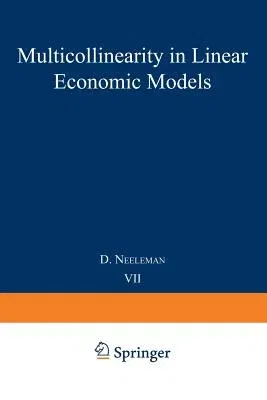D Neeleman
(Author)Multicollinearity in Linear Economic Models (Softcover Reprint of the Original 1st 1973)Paperback - Softcover Reprint of the Original 1st 1973, 23 August 2014

Qty
1
Turbo
Ships in 2 - 3 days
In Stock
Free Delivery
Cash on Delivery
15 Days
Free Returns
Secure Checkout
Part of Series
Tilburg Studies in Economics
Print Length
103 pages
Language
English
Publisher
Springer
Date Published
23 Aug 2014
ISBN-10
9401174881
ISBN-13
9789401174886
Description
Product Details
Author:
Book Edition:
Softcover Reprint of the Original 1st 1973
Book Format:
Paperback
Country of Origin:
NL
Date Published:
23 August 2014
Dimensions:
22.86 x
15.24 x
0.58 cm
ISBN-10:
9401174881
ISBN-13:
9789401174886
Language:
English
Location:
Dordrecht
Pages:
103
Publisher:
Series:
Weight:
158.76 gm

